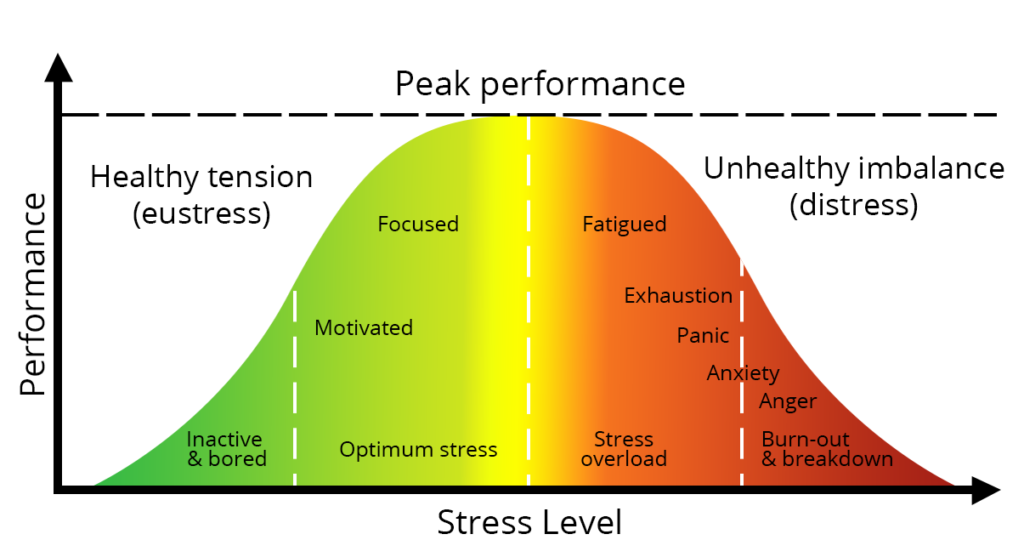Did you know that there’s more than just one type of stress? Learn how to adapt to every situation and use positive stress to your advantage.

Very often in our lives, we hear people say “I’m so stressed right now.” You might even be no stranger to saying this phrase yourself! We often associate stress with a negative, harmful emotion that hinders us from progress.
However, psychologists have done research on stress, and found out that stress can benefit us. It’s how we choose to think about stress, use stress to our advantage, and respond to it, that affects us. Stress can change our behaviours – for better or for worse. If we felt no stress, we wouldn’t even think to act in ways that can change us.
The two very different types of stress that we experience are eustress and distress. Eustress is a positive kind of stress, while distress is a negative kind. However, the ways that both these stresses affect us is very much in our control.
So, what is eustress exactly?
Eustress is a term coined by endocrinologist Hans Selye. It literally means “good stress”, and refers to the positive response to stress that is healthy and gives you a feeling of fulfillment. Have you ever felt stressed during an important event, but took it as a positive challenge and used that energy to motivate yourself to perform? That’s eustress.
Distress, on the other hand, is the more commonly referred to type of ‘stress’. It typically has negative implications. Distress is the type of stress that is persistent and doesn’t go away through coping or adaptation, often causing feelings of negativity and draining us emotionally.
How can we use stress to our advantage?
Now that we know the differences between these two kinds of stress, look at the ways that distress or eustress can appear in our lives:
Eustress
- Improves performance
- Short-term, comes and goes
- Motivates us, providing us with focus and energy
- Occurs when we believe something is in our capabilities to handle
Distress
- Demotivates and reduces our energy levels
- Causes feelings of anxiety, concern and worry
- Feels unpleasant, decreases performance levels
- Lasts for a long period of time

Maintaining a healthy tension
How do you typically respond to stressful events in your life? Do you let yourself stay distressed and feel demotivated? Or do you take this stressful energy as a positive challenge to overcome?
Stephen Covey’s 90/10 principle postulates that we have no control over 10% of what happens to us in life, but we can control the rest of the 90% by how we react to situations in our life.
10% of life is made up of what happens to you.
90% of life is decided by how you react to it.
Stephen Covey, author of The 7 Habits of Highly Effective People
In other words, we have control over 90% of the situations in our life. How we react to the changes and stresses in our lives reflect greatly on our mental state. We might have been taught from a young age that all stress is harmful and negative. Instead, if we learn to change our mindset and view things from the perspective of a positive challenge, then we can be motivated by stress and perform much better.
Change is constant and every stressful moment in our daily lives is an opportunity to practice a new way of responding. How might you change the way you think about challenges and stress to turn it into positive energy? If change and stress is inevitable, why not use its power to our advantage, rather than let it cause pain and worsen our mental health?
It’s all up to our perspective on things.
Enjoyed this post? Leave a comment below if you’ve experienced a time in your life when you benefited from stress!
BlankSlate Counselling is here to help anyone experiencing mental health issues. We believe that with care and trusted support, we can build a thriving population that supports mental health in Singapore.




Pingback: Stress - causes, effects and tips on coping | BlankSlate Counselling